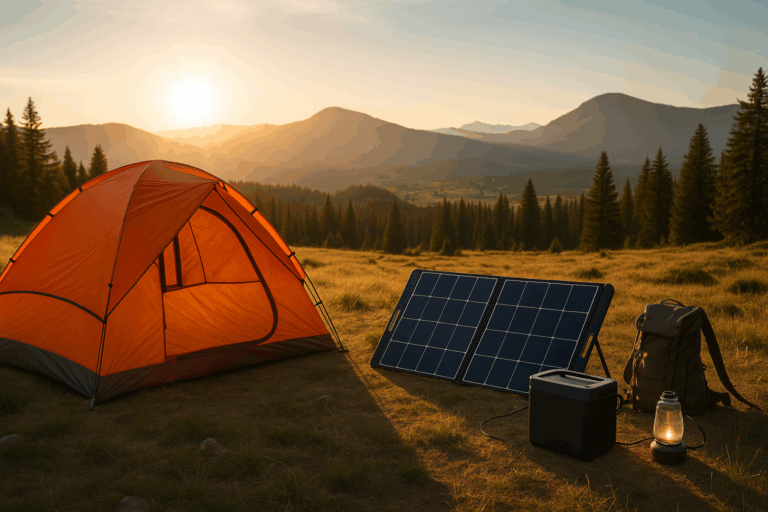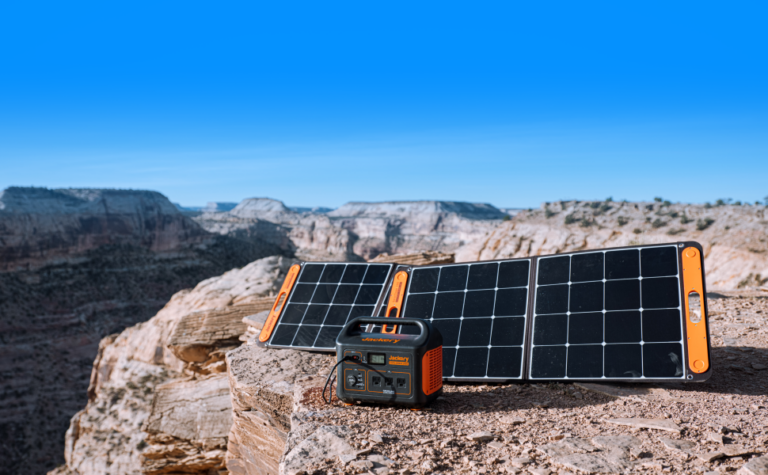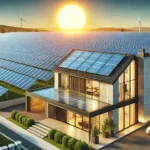Living off the grid means taking control of your resources, and one of the most critical elements of true self-sufficiency is a reliable water supply. While many off-grid enthusiasts focus on solar power for electricity, solar-powered water systems are an often-overlooked but game-changing innovation. Whether you’re homesteading, living in a tiny house, or preparing for full self-reliance, integrating solar energy into your water collection, purification, and distribution can make off-grid living more sustainable and convenient.
In this guide, we’ll explore how to harness solar-powered water pumps, filtration, and heating to ensure clean, drinkable water year-round—even in remote areas.
1. Solar Water Pumps: Powering Your Off-Grid Water Supply
Getting water where you need it without relying on municipal power is one of the biggest challenges in off-grid living. Solar-powered water pumps offer an energy-efficient solution for drawing water from wells, rainwater collection systems, or even natural sources like creeks and ponds.
Types of Solar Water Pumps:
- Submersible Solar Pumps – Ideal for deep wells (50+ feet) and capable of lifting water efficiently without external electricity.
- Surface Solar Pumps – Perfect for shallow wells, ponds, or tanks, these pumps move water over shorter distances.
- Solar Booster Pumps – Used to increase water pressure for home use, irrigation, or livestock watering.
How to Choose the Right Solar Water Pump
When selecting a solar water pump, consider: ✅ Water source depth – Deep wells require submersible pumps, while surface water sources can use surface pumps. ✅ Daily water demand – Calculate how many gallons per day you’ll need for drinking, cooking, irrigation, and livestock. ✅ Solar panel size – Ensure your pump’s power requirements align with your available solar energy output.
2. Solar Water Filtration: Purify Your Off-Grid Water Source
Even if you have access to a well or rainwater, you need a reliable filtration system to ensure safe drinking water. Solar energy can power advanced off-grid water filtration solutions, eliminating harmful bacteria, heavy metals, and contaminants.
Best Solar Water Filtration Methods:
- Solar UV Purification – Uses ultraviolet light to kill bacteria, viruses, and pathogens without chemicals.
- Solar-Powered Reverse Osmosis (RO) Systems – Removes impurities and minerals, ensuring clean water for drinking and cooking.
- Solar Distillation Systems – Great for desalinating water or purifying heavily contaminated sources.
- Gravity-Fed Solar Filters – Low-maintenance, cost-effective solutions that use slow filtration powered by solar energy.
🔹 Pro Tip: Combine multiple methods for a redundant filtration system, ensuring potable water in any situation.
3. Solar Water Heating: Sustainable Hot Water for Off-Grid Living
Hot water is often overlooked in off-grid setups, but solar-powered water heating can provide luxurious comfort without draining energy resources.
Types of Solar Water Heaters:
- Passive Solar Water Heaters – Simple, low-tech systems that use the sun’s heat to warm water stored in an insulated tank.
- Active Solar Water Heaters – More advanced systems that use solar panels to power pumps and circulate heated water.
- Thermal Solar Water Heaters – Use solar-thermal collectors to store and maintain hot water for longer periods.
✅ Best Practices for Off-Grid Solar Water Heating:
- Install insulated storage tanks to retain heat for nighttime use.
- Optimize solar panel positioning for maximum exposure.
- Use a backup wood-fired or propane heater for colder months.
4. Off-Grid Rainwater Harvesting: Pairing Solar with Water Collection
Rainwater harvesting is an essential strategy for off-grid homes, and solar-powered systems can optimize water collection, storage, and purification.
Key Components of a Solar Rainwater System:
- Gutter Collection System – Diverts rainwater into storage tanks.
- Solar-Powered Pump & Filtration – Ensures clean water is easily distributed throughout your home or property.
- Automated Water Level Sensors – Uses solar energy to monitor tank levels and automate water distribution.
🌦 Fact: In many regions, a well-designed rainwater harvesting system can provide all the water needed for an off-grid home year-round.
Conclusion
A solar-powered water system is one of the most valuable investments for off-grid living, ensuring clean, safe, and sustainable water access without relying on external utilities. Whether you’re setting up a solar well pump, filtration system, or hot water heater, integrating solar technology into your water strategy will make your off-grid life more efficient, comfortable, and sustainable.








